Digital Innovation Season 2.022
biology.is.digital
From 19 April to 31 May, Central Saint Martins’ Digital Innovation Season will explore and celebrate creativity in the digital space. This platform, in collaboration with the Living Systems Lab, offers public talks and workshops for CSM students. The 2.022 edition will examine the intersection of biology and the digital sphere to expand ecological knowledge.
{
how nature inspires technology;
how technology impacts nature;
}
Meet biologists, software engineers, artists and designers who are computing structures inspired by living systems, growing robots organically, and transporting information with biological signals. Investigate how tech is impacting our environment, but also how tech can help with the ecological crisis. Sign up to learn skills in creative coding, machine learning, 3D design and electronics – and to enrich your critical perspectives of the future. Open to all CSM students at all levels but spaces are limited!
#1 Data and AI in the ecological crisis
Data science and AI are key tools to identify climate disruptions and analyse how ecosystems evolve. Meet researchers and designers that use satellite imagery, machine learning, remote sensing and data visualisation to track deforestation, coastal erosion, analyse animals habitats and identify ecocides. The workshops will introduce some of the tools used to explore and respond to the ecological crisis.
-
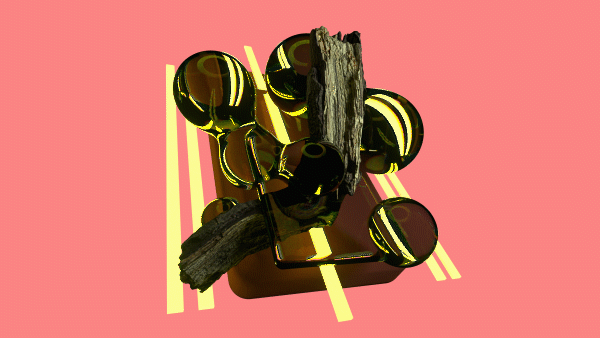
The role of data in the ecological crisis
with Dr Erika Berenguer, Dr Shridhar Jawak and Gaetan RobillardTalk
19 April, 5.30-7.00pm
Event now delivered, please click to watch recording -

Machine learning to analyse climate with satellite data – with Google Earth Engine
Workshop
20 April, 2.00-5.00pm
Event now passed -

Visualisation of ecological data– with RAWGraphs
Workshop
20 April, 2.00-5.00pm
Event now passed -

Mapping environmental violence with Forensic Architecture – with QGIS
Workshop
22 April, 4.00-6.00pm
Event now passed
#2 Planetary perspectives on technology
How is the relationship evolving between technology and humanity, other species, the Earth and the universe? Where is the line between "natural" and "artificial"? Leading thinkers will join us to give a wider, long term perspective on the future of technology. The workshops will tackle the multi-dimensional impacts of tech on our environment, including energy, mining and e-waste.
-
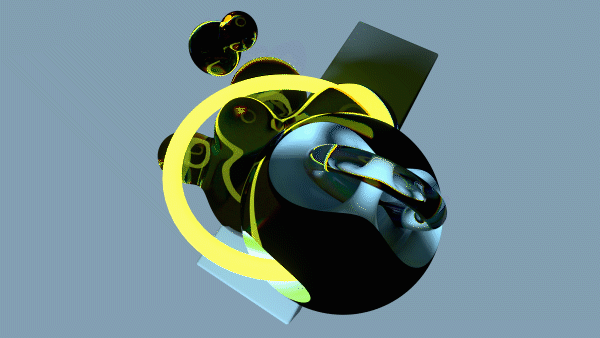
Planetary perspectives on digital technologies
with Reza Negarestani & Dr Betti MarenkoTalk
26 April, 5.30-7.00pm
Event now delivered, please click to watch recording -

Blockchains & supply chains; imagining a safer human ecology
Workshop
25 April, 5.00-7.00pm
Event now passed -

Eco web design
Workshop
27 April, 2.00-5.00pm
Event now passed -

Environmentally positive NFTs – Traceable Digital Ecologies
Workshop
5 May, 5.00-7.00pm
Event now passed
#3 Computed biological intelligence
Microorganisms, human cells, and other living systems communicate, memorise and compute by exchanging chemical and electrical signals. What can slime mould teach us? How can swarm behaviour be explored in physical computing? We will discover cutting-edge research on bio-computing, and experiment with biosensors and biological signals in Central Saint Martins’ labs.
-
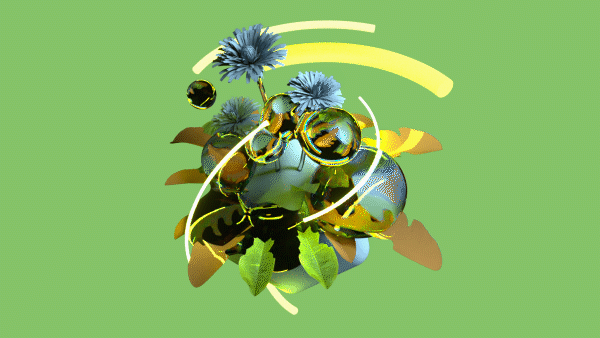
Intercellular communications, collective intelligence and bio-computing
with Prof Yukio Gunji, Prof Taj Keshavarz and Sasa SpacalTalk
3 May, 12.30-2.00pm
Event now delivered, please click to watch recording -

Life microscopy & imaging at CSM grow lab
Workshop
27 April, 2.00-5.00pm
Event now passed -

Swarm programming at CSM physical computing lab – with Arduino
Workshop
4 May, 2.00-5.00pm
Event now passed -

Synthetic biology at CSM grow lab
Workshop
5 May, 10.00am-1.00pm and 6 May, 5.00-6.00pm
Event now passed
-

Introduction to robotics in biotech at CSM growlab
Workshop
4 May, 3.00-5.00pm
Event now passed -

Bio-electrical interfaces at CSM grow lab
Workshop
11 May 1.30-5.00pm
Event now passed
#4 Growing bio-hybrid robots
The field of robotics draws inspiration from how living organisms evolve and adapt. How do animals learn to walk, or swim - and can we ‘grow’ robots and teach them complex motion? Beyond the mechanical intelligence of the body, we will learn from the chemical configuration of living cells, and how they are computed and integrated into bio-hybrid robots.
-
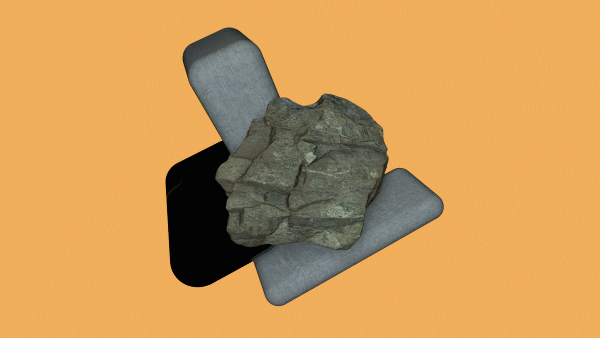
Bio-robots & artificial lifeforms
with Dr Sung Jin Park, Dr Jitka Čejková and Dr Lana SinapayenTalk
10 May, 12.30-2.00pm
Event now delivered, please click to watch recording -

Creature coding – with p5.js
Workshop
9 and 16 May, 5.00-7.00pm
Event now passed -

Digital garments design with The Fabricant
Workshop
10 May, 5:30-7pm
Event now passed -

Designing an avatar & digital garments - with clo3D and daz3D at csm digital media
Workshop
11 May, 2.00-5.00pm
Event now passed
-

Project XO wearable robotics performance
Workshop
18 May, 2-5pm, one hour slots
Event now passed -

Morphological Computation – Intelligent Bodies for Intelligent Robots
Workshop
25 May, 2.00-5.00pm
Event now passed
#5 Acoustic approaches to ecology
Digital tools are being used to capture, edit, amplify sounds of nature to create immersive multi-sensory experiences. These sessions will explore how sonic information can help extend human senses with sonifications of beyond-audible signals from nature and how acoustics ecology can help us analyse animal habits and reforestation.
-
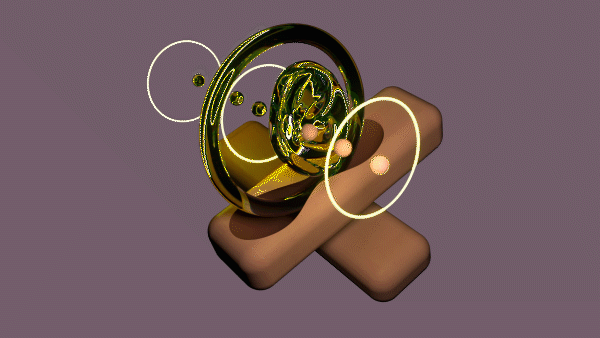
Acoustic approaches to ecology
with Lawrence EnglishTalk and Performance
17 May, 12.30-2.00pm
Event now delivered, please click to watch recording -

Machine learning [sound as output] - Wekinator & Mimic
Workshop
16 May, 4.00-6.00pm
Event now passed -

Designing an immersive audio ecosystem – with Envelop for Live on Ableton
Workshop
21 May, 10.00am-4.00pm
Event now passed
#6 Modelling the organic
Drawing inspiration from nature, 3D designers and software developers mimic living systems’ patterns, structures, shapes and forms. Workshop participants will have the opportunity to learn modelling tools at different levels: design a 3D organism, animate the organic growth of a model, or model particles. We will also learn how computer science research is developing intelligent networks inspired by nature’s technology.
-
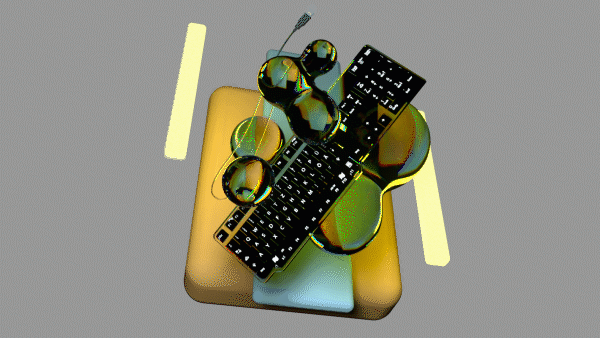
Computational models of living systems
with Marshmallow Laser Feast & Dr Payam ZahadatTalk
24 May, 5.30-7.00pm
Event now delivered, please click to watch recording -

Modelling in a 3D lifeform – in Blender (beginner)
Workshop
Thursdays, 28 April-19 May, 5.00-7.30pm
Event now passed -

Creating Generative Artwork - with Houdini
Workshop
Thursday 12, 19, 26 May, 5.00-7.30pm
Event now passed -

Tech-Meets-Biology Curators Roundtable
with Christian de Lutz, Tuçe Erel & Magdalena Regina Tyzlik-CarverTalk
31 May, 5.30-7.00pm
Event now delivered, please click to watch recording
